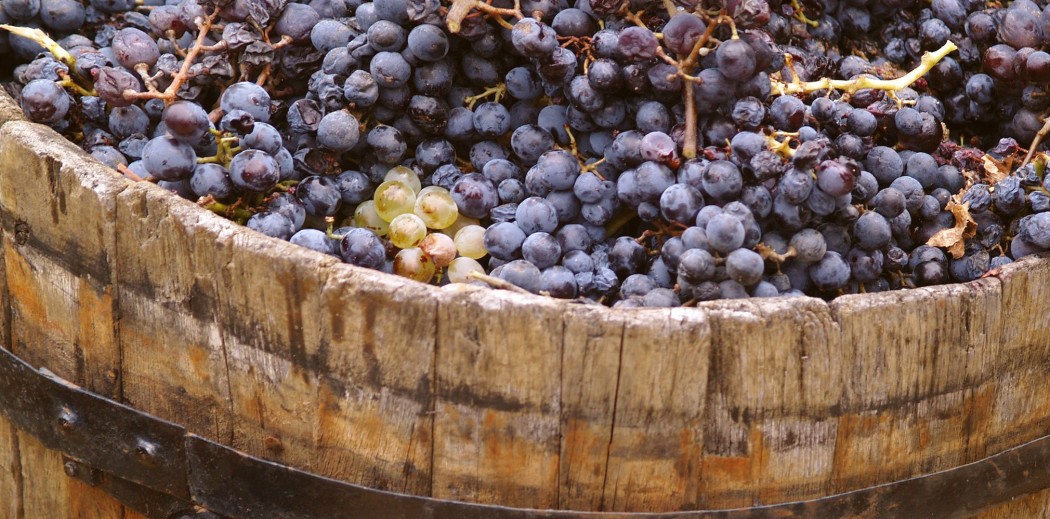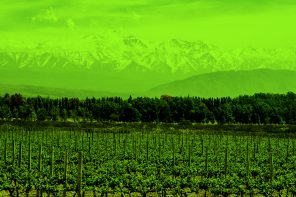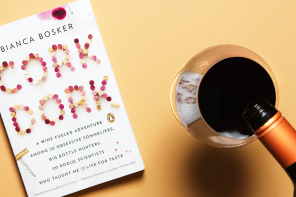‘Natural’ is a word that means a million different things to a million different people. In the wine world, the term is applied to wines in the same vein as organic and biodynamic wines. Unlike organic wines, there are no laws that define ‘natural,’ just as there are no governing bodies that can legally certify a wine as such. Though the ‘natural’ label has all the characteristics of a meaningless buzz word, this is not the case. There are a few very important distinctions to be made and, most importantly, tasted.
For the most part, natural winemakers follow the same production guidelines as organic and biodynamic winemakers. In fact, many natural winemakers use organic or biodynamic grapes. (This means hand-picked grapes grown without the use of pesticides and chemicals.) In the cellar, additives used to balance flavors, filter wines, improve colors and increase the longevity of a wine are forbidden- though some organic winemakers do advocate for the use of a minimal amount of sulfites.
The key distinction between natural wines and their organic/biodynamic cousins lies in the extreme extent to which intervention (both in the vineyard and in the cellar) is forbidden. Many think that the rise of natural winemaking (the emergence of a philosophy vehemently opposed to techniques that are thought to “improve” wines) is a reaction to the so-called “Parkerization” of wine.
As the world becomes smaller and smaller, many argue that critics and wine institutions (notably Robert Parker) have gained too much power and influence. Subsequently, winemakers across the globe began to make wines to try and please the palates of a few, using all sorts of techniques in the cellar to accomplish this goal.
Proponents of natural wine argue that this is a bad thing. By engineering wines to please the tastes of powerful reviewers, the wine drinker loses one of wine’s most interesting and important characteristics- terroir or a “sense of place.” In the eyes of a natural winemaker, adding sulfites, using foreign yeasts and finding wiggle room to employ techniques that “clean” a wine is actually more like sterilizing it. In order for a bottle to be true to its terroir, to represent its sense of place and (it is argued) maintain its purity- one must intervene in the production of that wine as little as possible. Basically, crush the grapes, let ’em ferment and then bottle whatever becomes of the juice.
What this means is that in cases where even the organic or biodynamic winemaker intervenes in the process (adds small amounts of sulfites or foreign yeasts to balance and clean it) the natural winemaker simply lets the juice do its thing. If organic winemakers are like the vegetarians of the wine world and biodynamic winemakers are like the vegans of the wine world- natural winemakers are the raw vegans. The difference is not just one of principle however, it can be tasted.
Natural wines are known to possess a certain “funky” quality. Some somms have diplomatically chosen the term “barnyard” for this scent, which really just smells like manure (but isn’t always a bad thing). Alongside the smell of a farm are certain other flavors we’ve come to forget about, earthy and pungent off-brand flavors that a modern, conventionally-produced wine would never exhibit. These “off” flavors are a byproduct of the wild yeasts that natural winemakers allow to ferment their wines, in standing with their belief that minimal intervention is key to unlocking a wine’s terroir.
That natural wine smells a little funky, has some flavors that take getting used to and has what other winemakers would call “faults” should come as no surprise. The natural winemaker has intentionally eschewed all of the processes that have been developed to control our wine, make it taste cleaner, eliminate the barnyard and eradicate the yeasty flavors that all alcoholic beverages once had. For the most part, natural winemakers are producing wine the way it was produced before strands of yeast were isolated, spontaneous fermentation was roundly rejected and additives and technology gave winemakers greater control over the end product.
There are plenty of people (sommeliers, tastemakers and wine world personalities) who see the natural wine ethos as an excuse for sloppily made wine, a philosophical rationalization for doing a bad job in the cellar or a misguided refusal to utilize techniques that were developed to make wine better. But is cleaner truly better, or is industrialized wine sterile wine? Is there something to be said for the flavors folks like Parker have written off, or did they have good reason to do so?
Whether you see natural wine as a miniature revolt against the undeniable corporatization and homogenization of wine, or as the folly of a bunch of hippies who need to learn how to clean up their product is a matter of perspective and opinion, but there’s only one way to find out, and that’s by drinking the stuff.








